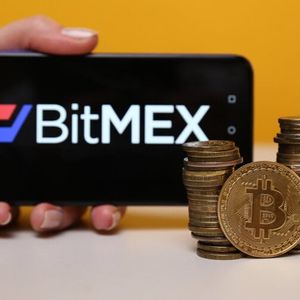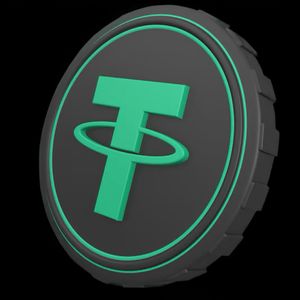Bitcoin (BTC) is the largest and most traded cryptocurrency, allowing users to initiate transactions with anyone globally. However, you need a secure wallet to store, send, receive, and access your BTC safely. This is where Bitcoin wallets come into the picture. A Bitcoin wallet comes in many forms, each offering unique features, allowing holders to keep their BTC safe, make transactions, and track their balance. Whether you are a beginner or an experienced trader, a wallet is crucial to store your assets securely. This guide will examine the different types of Bitcoin wallets, how they work, and which would work best for BTC holders. What Is A Bitcoin Wallet? A Bitcoin wallet is a device that allows you to store, send, and receive BTC securely. Think of it as a virtual version of a regular wallet holding the keys that allow you to access your BTC . When a transaction is initiated, the wallet uses the private keys stored in it to transfer BTC . The private key is your secret password that gives you complete control over your funds. If you lose access to your private keys, you lose access to your BTC . This is why you must keep your private keys secret at all times. If a third party gets hold of them, they can easily steal your assets. How Does A Bitcoin Wallet Work? When you create a Bitcoin wallet, a seed phrase is generated. This acts as a starting point for your cryptographic keys. The seed phrase consists of 12 or 24 words called a mnemonic phrase. The mnemonic phrase acts as a recovery seed, allowing you to restore your wallet and access your BTC even if you misplace your wallet. Bitcoin wallets use a hierarchical deterministic (HD) key generation system, allowing them to generate a new public key for each transaction. This makes it difficult for others to track your payment history and keep your financial activities private. Now, let’s understand how the transaction would work. Your Bitcoin wallet allows you to view your current balance and send and receive BTC . When sending BTC , enter the amount you want to send and the recipient’s Bitcoin address. The transaction is then signed using your private key and broadcast to the Bitcoin network, which verifies the transaction and digital signature. Once completed, the transaction is confirmed and added to the blockchain. Alternatively, if someone wants to send you BTC , they will require your wallet address. For privacy reasons, it is advisable to give a new Bitcoin address for each transaction since public addresses are publicly visible and can be tracked on the blockchain. Types Of Bitcoin Wallets There are several types of Bitcoin wallets, each offering unique functionalities. With so many choices on offer, selecting which wallet works best for you can be a daunting task. Hot Wallets Also called software wallets, these wallets are always connected to the internet, allowing users to conveniently buy, sell, and trade Bitcoin and other digital assets. However, this convenience comes at a price. Because these wallets are connected to the internet, they are vulnerable to threats like hackers, malware, and phishing attacks. That said, hot wallets are extremely popular among traders. These wallets have security features like 2FA and biometric access to counter security threats. Hot wallets come in several avatars: Mobile Wallets Mobile wallets can be downloaded as an app on your mobile device, allowing you to trade on the go. Mobile wallets offer a high degree of convenience and are ideal for frequent trading. However, these wallets can be vulnerable if security features like 2FA are not enabled. Web Wallets Web wallets are often linked to centralized exchanges and store the private keys on servers controlled by third parties, making them vulnerable to hacks, theft, and exchange failures. Desktop Wallets As the name suggests, desktop wallets can be downloaded and installed on your computer. The private keys are stored locally on your device, allowing users to have more control than desktop and mobile wallets. Desktop wallets are ideal for beginners but are vulnerable to hacking attempts because they are connected to the internet. Lightning Wallet Lightning wallets are designed for the Bitcoin Lightning Network and facilitate quick, low-cost transactions. They are ideal for frequent use but unsuitable for long-term storage due to the fees involved. Cold Wallets Cold wallets, also called hardware wallets, are physical devices that allow holders to store their BTC . Cold wallets keep the private keys secure by keeping them online, thus eliminating threats from hackers. These wallets are ideal for users who want to hold their BTC for a long time but are less convenient for frequent transactions. When the wallet holder wants to initiate a transaction, they must connect it to a computer with an internet connection, sign, and complete the transaction. There are two types of cold wallets. Hardware Devices These are compact devices resembling a USB drive that allows users to securely store their private keys offline. Prominent examples include Trezor and Ledger Nano. They are user-friendly and have screens that allow users to initiate and complete transactions. Paper Wallets Paper wallets contain your public and private keys in QR code form. Paper wallets are highly secure from online attacks and threats from hackers but require extreme care to prevent physical damage, which could render them useless. How To Ensure Wallet Security Like all cryptocurrency wallets, Bitcoin wallets are also vulnerable to security risks. This is why you must take measures to ensure the security of your BTC . Here are some tips and tricks you can follow. Two-factor Authentication - Enabling two-factor authentication adds an extra layer of security by asking for a second form of verification in the form of a code. This helps keep your wallet secure even if your password is compromised. Regular Updates - Keep your wallet software updated. This helps patch security vulnerabilities and enhance protection. Research - Research and choose a wallet that has a proven track record and robust security practices. You must also make sure they store private keys offline and have strong encryption. Hardware Wallets - If possible, select a hardware wallet. These wallets ensure security by storing your private keys offline, making them immune to hacks. Hardware wallets should be the only choice if you intend to hodl your BTC . Strong Password - Create a strong and unique password. Your password must consist of a mix of numbers, letters, and special characters. Store Backup Phrases - Store your backup phrases offline in a secure location. Avoid storing them on a device connected to the internet, and never share them with anyone. Avoid Phishing Scams - Double-check website URLs before clicking on them, and do not respond to unsolicited messages or emails. Many users tend to fall for phishing scams designed to trick them into revealing private information. Review Wallet Activity - Periodically review your wallet activity, transaction history, and wallet balances. Take adequate measures if you notice any unauthorized activity. In Closing A Bitcoin wallet helps users to securely buy, sell, trade, and manage their BTC holdings. As a trader, you must understand your requirements before selecting a wallet. If you are someone who intends to trade BTC frequently, a hot wallet is ideal. However, a cold wallet makes sense if you want to hodl your BTC . Always choose a wallet that aligns with your needs and stay updated with the latest security practices to ensure the safety of your assets. Disclaimer: This article is provided for informational purposes only. It is not offered or intended to be used as legal, tax, investment, financial, or other advice.




















